How to Make Your Own Natural Insecticides and Repellants
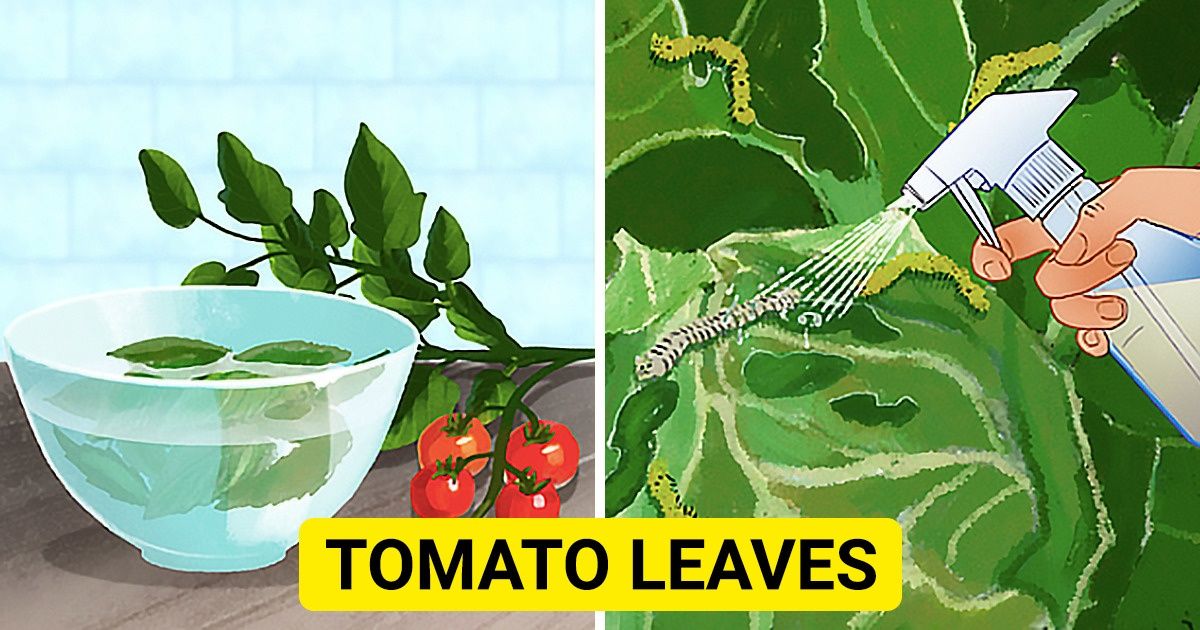
Natural insecticides and repellants can be excellent and efficient solutions for people who don’t want to use chemicals and strive to be more environment-friendly.
5-Minute Crafts has selected some alternative recipes to make your own repellants and insecticides to help you fight various pests in your home or garden.
1. Red pepper
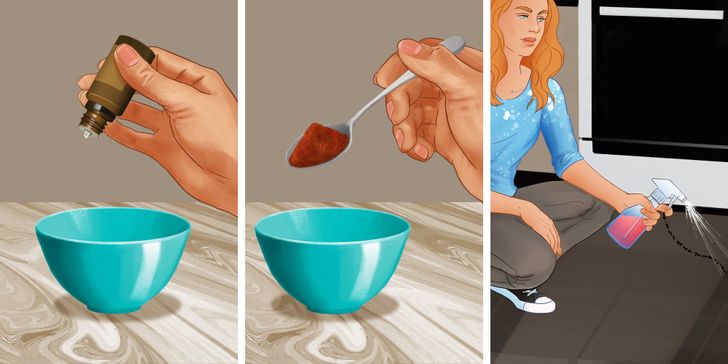
Red pepper is a natural insecticide that can work hard to put an end to those small ant trails that appear in the kitchen and other areas around your home. Mix 10 drops of any citric essential oil (like orange or lemon, for example) with a teaspoon of red pepper and a cup of warm water. With the help of a spray bottle, splash it wherever it’s needed.
We recommend using a sprayer because it will allow you to reach every corner more easily.
2. Garlic
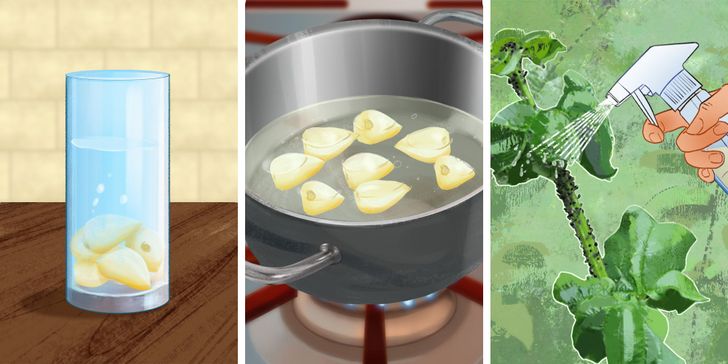
Because of its powerful aroma, garlic can repel and kill certain types of insects in your garden, and it can be especially effective against aphids and ants. To make it, do the following:
-
Soak a peeled garlic head in a liter of water for at least 12 hours.
-
Then cook it over low heat for about 20 minutes and let it cool.
-
Pour the mixture into a spray diffuser and apply it directly to the plants from a distance of about 6 inches.
3. Eggshells
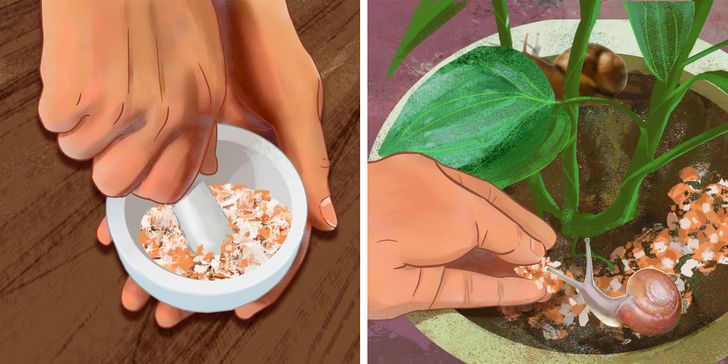
Apart from being an extraordinary natural fertilizer, eggshells can combat the appearance of snails, slugs, and some types of caterpillars. Just crush the eggshells and spread them around the roots of the plants. For best results, pulverize the eggshells.
4. Lavender
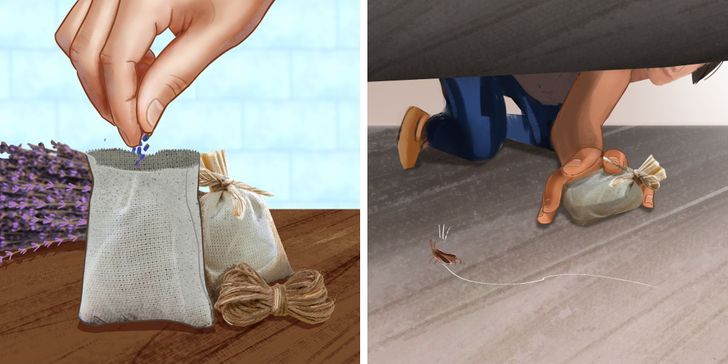
Although lavender produces a pleasing aroma for humans, it may not be as delicious to some insects, like cockroaches. To use it as a repellant, fill small cloth bags with lavender flowers and leaves. They can be fresh or dried, the effect is the same. You can also use empty tea bags instead of cloth bags. Place them inside closets, furniture, and other problematic corners around your home.
5. Baking soda
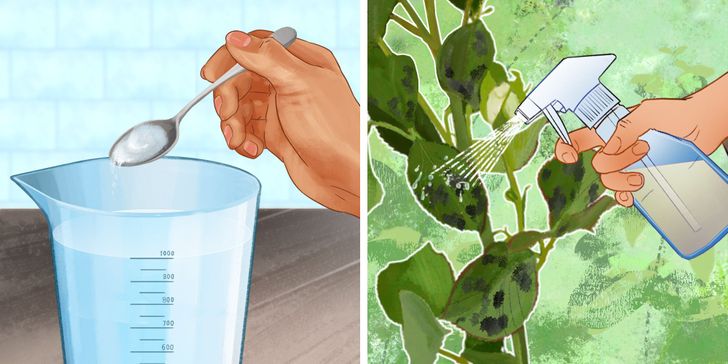
In addition to insects, fungi can also be problematic for your plants. To prevent these from infesting your garden and destroying your crops, dilute 2 tablespoons of baking soda in 4 cups of water. Then spray the mixture over your selected plants using a diffuser. Do this twice a day for a week.
6. Tomato leaves
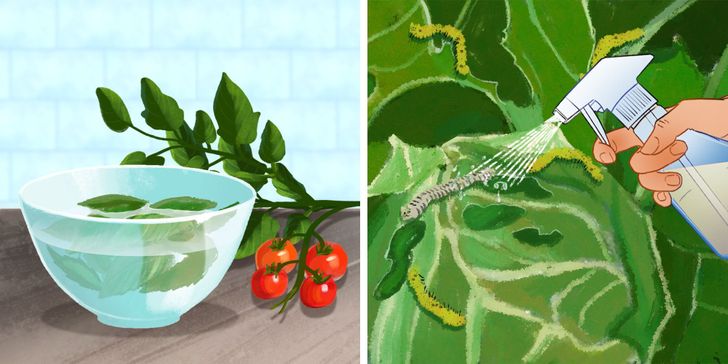
Tomato leaves can effectively battle caterpillars due to their high alkaloid content. To use this component as an insecticide on your plants, let 2 cups of chopped tomato leaves rest in the same amount of water overnight. Then add 2 glasses of water and pour the whole liquid into a diffuser. Spray where needed.
7. Vegetable oil
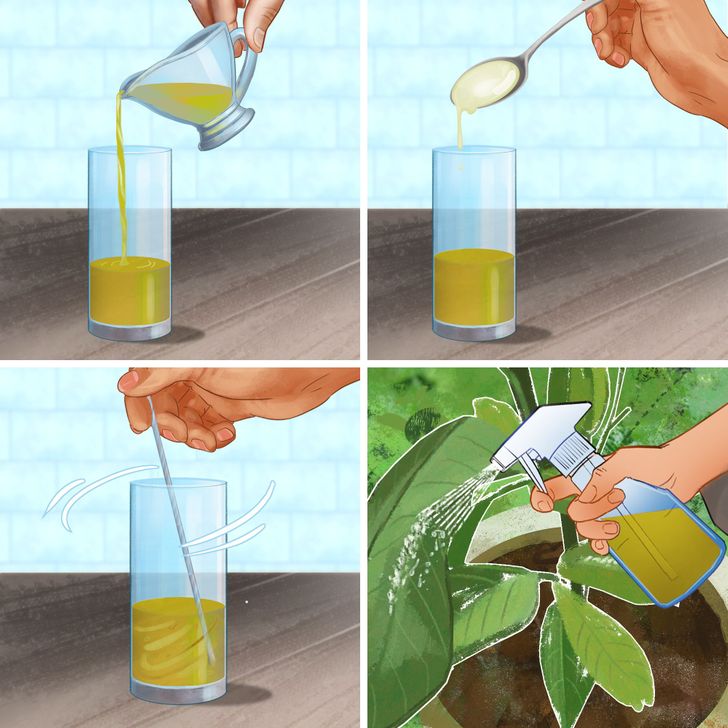
Mealybugs are one of the most common pests of indoor and outdoor plants, including cacti and succulents. To get rid of them, mix a cup of vegetable oil and a tablespoon of liquid soap until both liquids completely integrate. Next, add 2 teaspoons of this mixture to a cup of water. Take this to a diffuser and spray it on your plants.